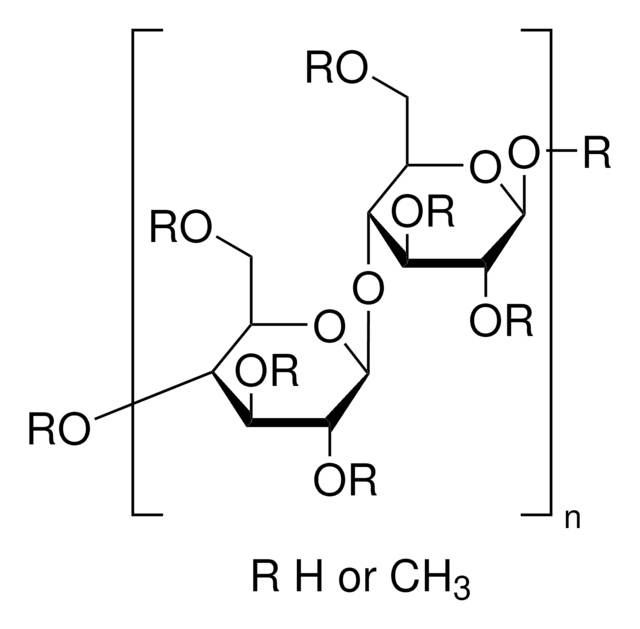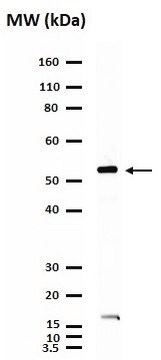5123
CD276 human
recombinant, expressed in E. coli, 0.5 mg protein/mL
About This Item
Productos recomendados
biological source
human
recombinant
expressed in E. coli
description
0.1 mg recombinant human CD276 in 20 mM Tris-HCl buffer, containing NaCl, KCl, EDTA, L-arginine, DTT and glycerol.
sterility
Filtered sterilized solution
assay
≥90% (SDS-PAGE)
form
liquid
packaging
pkg of 100 μg
concentration
0.5 mg protein/mL
technique(s)
cell culture | mammalian: suitable
accession no.
NP_001019907
shipped in
dry ice
storage temp.
−20°C
Gene Information
human ... CD276(80381)
Application
Use this procedure as a guideline to determine optimal coating conditions for the culture system of choice.
1. Thaw CD276 and dilute to desired concentration using serum-free medium or PBS. The final solution should be sufficiently dilute so the volume added covers the surface evenly (1-10 μg/well, 6 well plate).
Note: Use 1 ml PBS per well in a 6-well plate.
2. Add 1 - 10 μg protein to each well and incubate at 2 to 10 °C overnight.
3. After incubation, aspirate remaining material.
4. Plates are ready for use. They may also be stored at 2-8 °C damp or air dried if sterility is maintained.
Sequence
Preparation Note
Storage Class
10 - Combustible liquids
wgk_germany
WGK 2
flash_point_f
Not applicable
flash_point_c
Not applicable
Elija entre una de las versiones más recientes:
Certificados de análisis (COA)
Lo sentimos, en este momento no disponemos de COAs para este producto en línea.
Si necesita más asistencia, póngase en contacto con Atención al cliente
¿Ya tiene este producto?
Encuentre la documentación para los productos que ha comprado recientemente en la Biblioteca de documentos.
Nuestro equipo de científicos tiene experiencia en todas las áreas de investigación: Ciencias de la vida, Ciencia de los materiales, Síntesis química, Cromatografía, Analítica y muchas otras.
Póngase en contacto con el Servicio técnico







